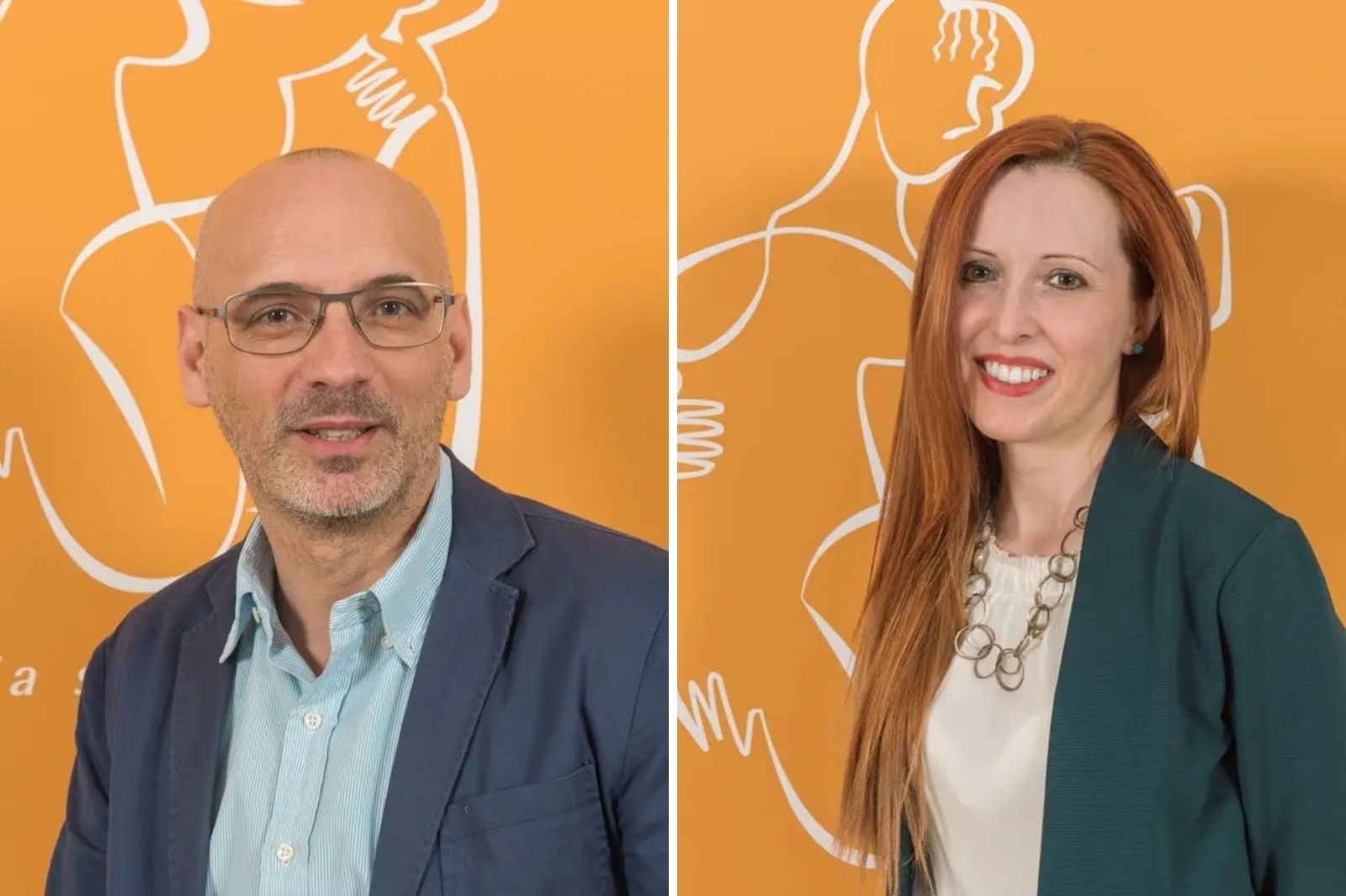UON academics develop English language family therapy tool
Date 16.12.2020
16.12.2020
Families in the UK will benefit from a new tool that therapists can use to help address complex issues, thanks to an idea from University of Northampton academics.
Elisa Gusmini and Ferdinando Salamino (pictured above) specialise in counselling and psychological therapies and lecture on the University’s MSc Counselling Children and Young People programme.
Since 2018 they have been working with Ondina Greco, the Italian author who created the Double Moon Drawing (DMD) test. They finalised an English language version of her handbook, complete with research updates, new case studies and clinical applications for UK-based therapists.
The DMD is designed to capture the psychological dimensions of bonding, mutual belonging, presence, absence and boundaries in complex family situations.
It is particularly effective when used in relation to (but is not limited to) adoption, foster care, marital separation and divorce and loss and bereavement.
All that is needed is a piece of paper and coloured pens, pencils, crayons or other illustration tools. Family members then ‘draw’ or graphically represent their views about issues they have difficulty vocalising. The therapist uses the images to explore and, hopefully, resolve the issues at hand.
The test can be administered in almost any situation – including online counselling – and is suitable for use with very young children.
Now, thanks to Elisa and Ferdinando – and funding from the University Changemaker Hub’s Enterprise Boost – an English translation is available in a fully updated UK version that updates use of the test to UK-specific contexts, especially in relation to adoption and foster care.
Elisa said of the new handbook: “The Double Moon Drawing has been very popular amongst our trainee counsellors since 2014 due to its ease of use and flexibility of applications. But, despite research contributions in the field, there was no official handbook available in the UK or in English.
“The DMD will be made accessible for our students studying relevant courses but the translated DMD has obvious applications outside of the classroom. It is not only an assessment tool but also a facilitating instrument throughout the course of therapy, making it a useful addition in the ‘therapeutic toolbelt’ for UK colleagues working in the clinical field. We are very happy to see our work with Ondina come to fruition.”